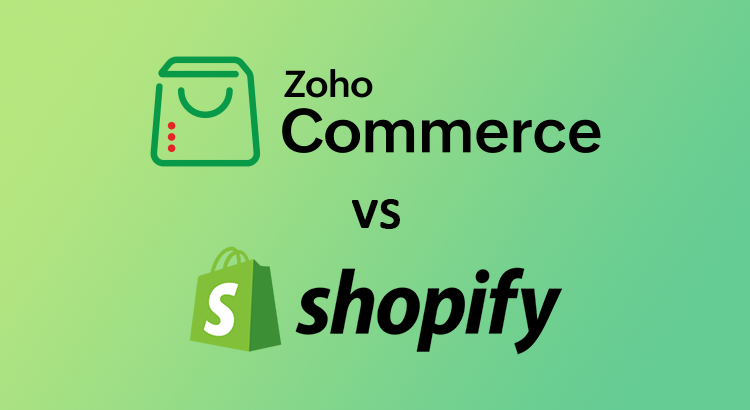When it comes to launching an online store, Zoho Commerce vs Shopify is a common debate among business owners. Both platforms offer powerful ecommerce solutions, but they cater to different needs. One provides a highly customizable experience with extensive third-party integrations, while the other focuses on seamless business management with built-in tools.
Choosing the right platform depends on factors like budget, ease of use, scalability, and integration capabilities. This detailed comparison will help you determine which ecommerce solution best aligns with your business goals
What is Shopify?
One of the most popular ecommerce platforms, this service allows businesses to set up online stores with ease. It provides a range of tools for customization, product management, and marketing, making it a preferred choice for many entrepreneurs. The platform supports multiple integrations and offers a scalable solution for both small businesses and large enterprises. The top Shopify development companies offer various services, including store setup, theme customization, app integration, and performance optimization to enhance ecommerce operations.
What is Zoho Commerce?
This ecommerce solution is designed to help businesses build and manage online stores efficiently. As part of a broader suite of business applications, it seamlessly integrates with other tools for CRM, accounting, and marketing. The platform provides a user-friendly experience and is particularly beneficial for those already using Zoho’s ecosystem. The best Zoho Commerce developers provide services such as store setup, customization, integration with business tools, and performance optimization to enhance ecommerce operations.
A Comparative Analysis of Shopify vs Zoho Commerce
Choosing an ecommerce platform requires careful evaluation of various factors. Below is a comparison of key aspects, helping you determine which option aligns with your business needs.
1. Ease of Use
Shopify provides an intuitive interface with a drag-and-drop builder, making it easy to set up and manage an online store without technical expertise. The structured dashboard simplifies product management, order tracking, and marketing.
Zoho Commerce also offers a user-friendly experience, but its strength lies in seamless integration with other Zoho applications. Businesses already using Zoho’s ecosystem for CRM, accounting, or marketing may find it more convenient, as many tools work together within a unified interface.
2. Customization & Flexibility
With Shopify, users have access to a vast selection of themes, both free and premium, allowing for extensive design customization. Additional flexibility comes from a large app marketplace where businesses can enhance store functionality.
Zoho Commerce offers built-in customization tools and integrates well with Zoho’s suite of business applications. While the design options may not be as extensive, it provides a streamlined experience for businesses looking for an all-in-one solution.
3. Pricing & Expenses
Shopify follows a subscription-based model with different pricing tiers, each offering varying levels of features, transaction fees, and support. Additional expenses may arise from paid themes, apps, and third-party integrations.
Zoho Commerce is included in Zoho’s broader business plans, which may make it a cost-effective choice for those already subscribed to other Zoho services. The pricing structure allows businesses to access ecommerce tools without paying separately for every feature.
4. Integration & Ecosystem
A strong ecosystem is crucial for expanding store functionality. Shopify connects with thousands of third-party apps, covering everything from marketing automation to inventory management. This makes it highly adaptable to different business needs.
Zoho Commerce, on the other hand, is designed to work effortlessly with other Zoho applications. This built-in connectivity eliminates the need for multiple third-party subscriptions, making it ideal for businesses that rely on Zoho’s ecosystem for operations.
5. Scalability & Growth
Shopify is widely recognized for its scalability, supporting businesses from startups to large enterprises. With advanced plans and enterprise-level solutions, it can handle growing product catalogs, high traffic, and international expansion.
Zoho Commerce is a solid choice for small to mid-sized businesses looking for an all-in-one platform that simplifies operations. While it supports growth, its scalability is best suited for businesses that benefit from a fully integrated system rather than extensive third-party customizations.
Zoho Commerce or Shopify: Which is the Right Platform for Your Business?
The ideal choice depends on business priorities. Shopify is well-suited for those who need a flexible, highly customizable store with access to a vast ecosystem of apps and integrations. Zoho Commerce, on the other hand, is a great option for businesses already using Zoho products, offering an efficient and cost-effective ecommerce solution.
Closing Thoughts
Both ecommerce services offer powerful features, but their strengths lie in different areas. One is highly flexible with extensive customization, while the other excels in seamless business integration. Carefully assess your business needs, budget, and future growth plans to choose the best fit.


